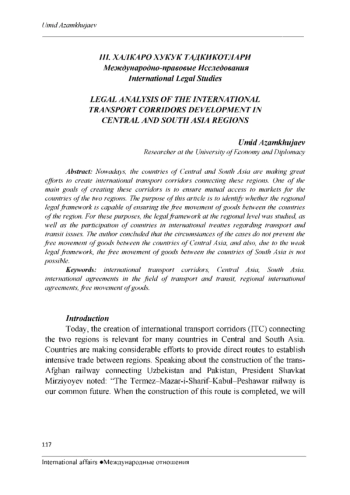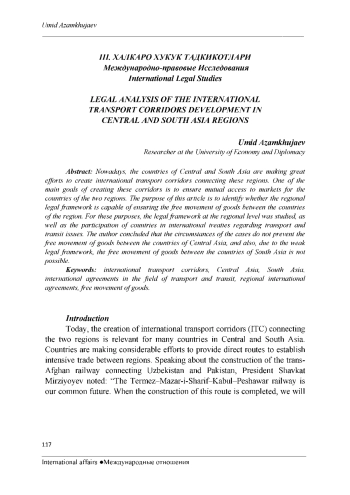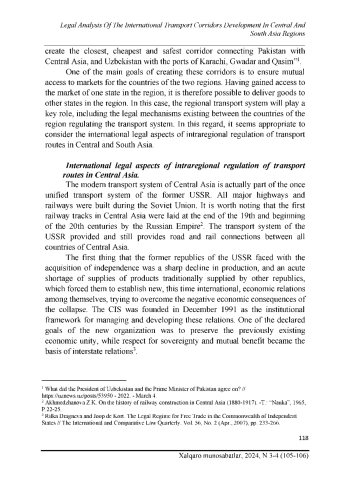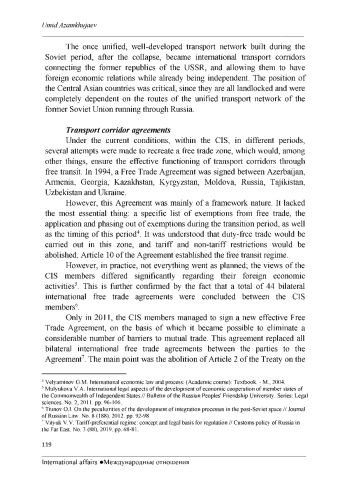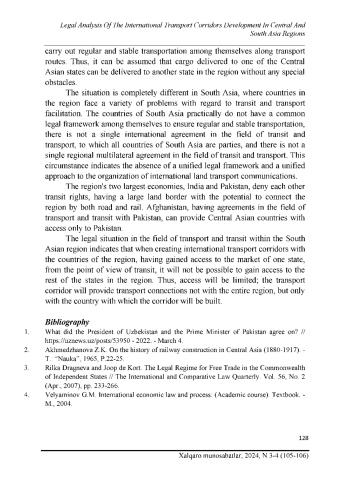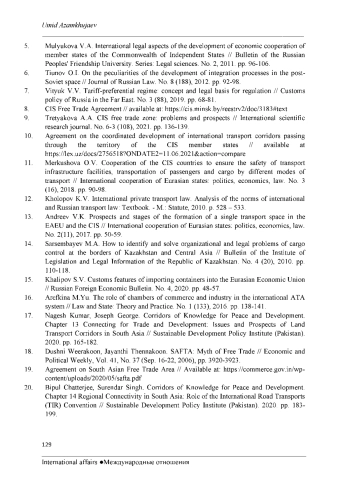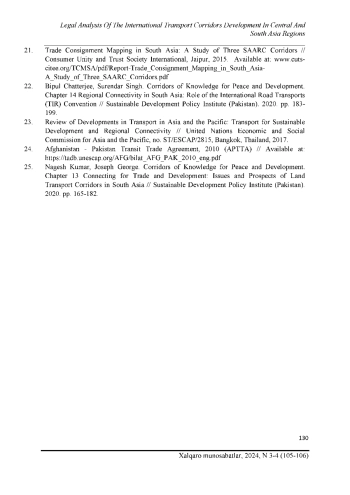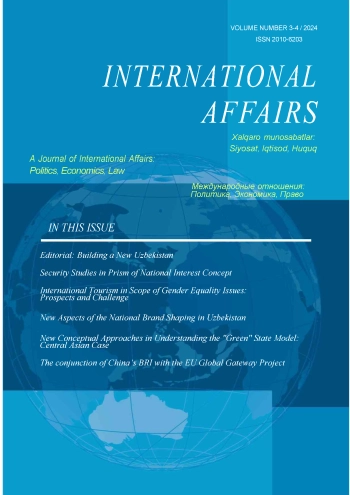Hozirgi kunda Markaziy va Janubiy Osiyo mamlakatlari ushbu mintaqalarni bog’laydigan xalqaro transport yo’laklarini yaratish uchun katta sa’y-harakatlarni amalga oshirmoqdalar. Ushbu koridorlarni yaratishning asosiy maqsadlaridan biri ikki mintaqa mamlakatlari bozorlariga o’zaro kirishni ta’minlashdir. Ushbu maqolaning maqsadi mintaqaviy Qonunchilik bazasi mintaqa mamlakatlari o’rtasida tovarlarning erkin harakatlanishini ta’minlashga qodirligini aniqlashdir. Ushbu maqsadlar uchun mintaqaviy darajadagi Qonunchilik bazasi, shuningdek transport va tranzit masalalariga oid xalqaro shartnomalarda mamlakatlarning ishtiroki o’rganildi. Muallifning xulosasiga ko’ra, ishlarning holatlari Markaziy Osiyo mamlakatlari o’rtasida tovarlarning erkin harakatlanishiga to’sqinlik qilmaydi, shuningdek, zaif Qonunchilik bazasi tufayli Janubiy Osiyo mamlakatlari o’rtasida tovarlarning erkin harakatlanishi mumkin emas.
Nowadays, the countries of Central and South Asia are making great efforts to create international transport corridors connecting these regions. One of the main goals of creating these corridors is to ensure mutual access to markets for the countries of the two regions. The purpose of this article is to identify whether the regional legal framework is capable of ensuring the free movement of goods between the countries of the region. For these purposes, the legal framework at the regional level was studied, as well as the participation of countries in international treaties regarding transport and transit issues. The author concluded that the circumstances of the cases do not prevent the free movement of goods between the countries of Central Asia, and also, due to the weak legal framework, the free movement of goods between the countries of South Asia is not possible.
Предпросмотр статьи
Идентификаторы и классификаторы
- УДК
- 32. Политика
